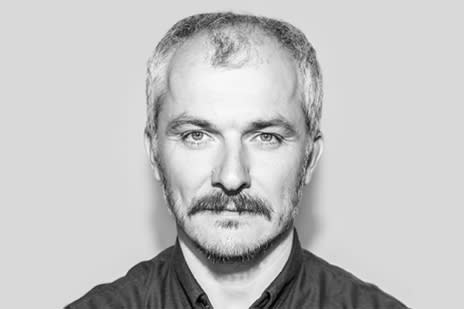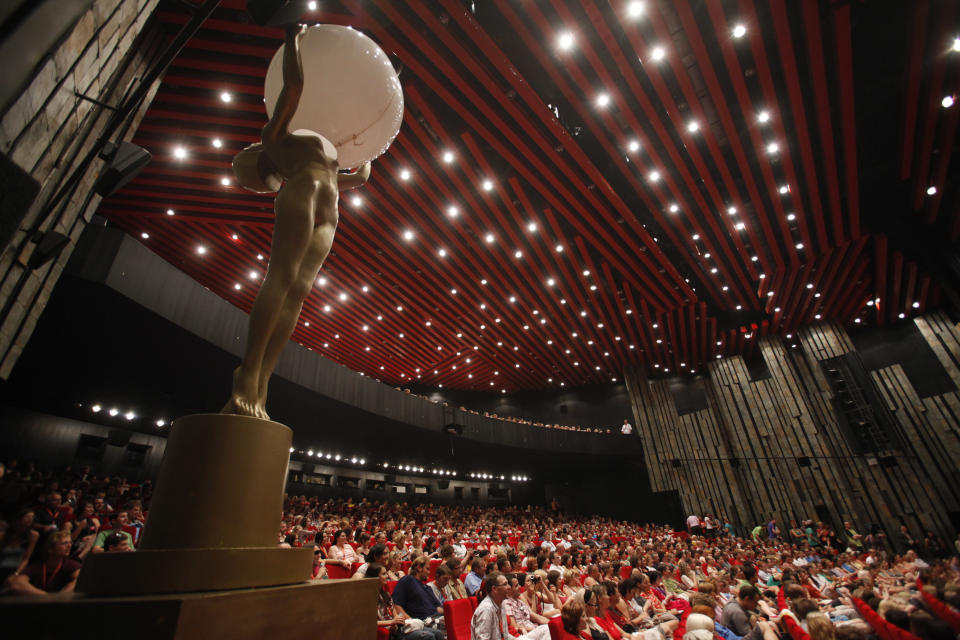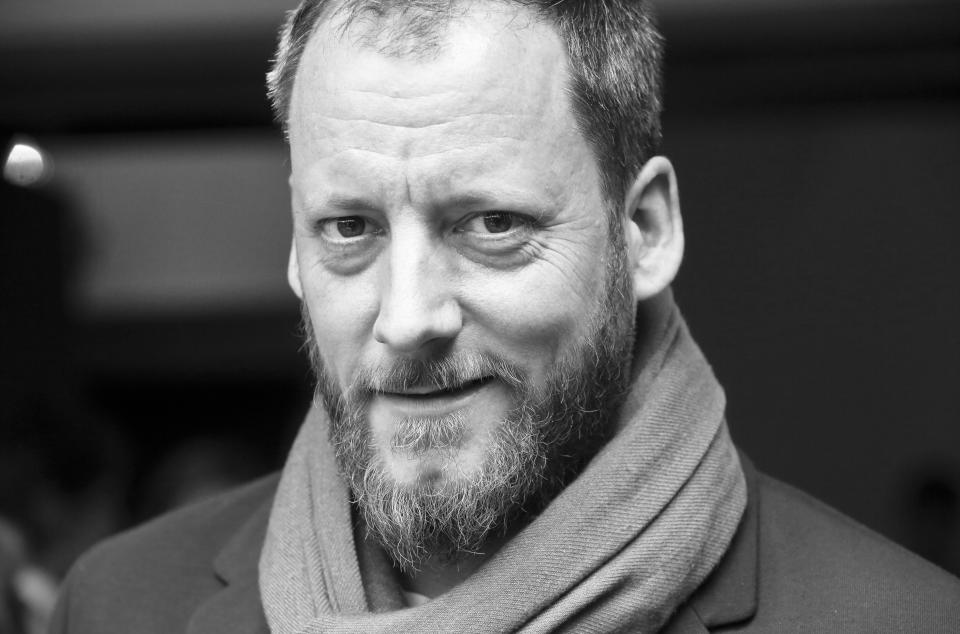Festival In Focus: How The Karlovy Vary International Film Festival Continues To Be An “Edgy” & Culturally Significant Film Destination

As the 56th edition of the Karlovy Vary International Film Festival (KVIFF) is about to kick off on Friday, there will be plenty to discuss at this year’s event in the picturesque Czech spa town. The prominent Central European festival, which is returning to its usual early July slot after last year’s edition was delayed to August because of the pandemic, will see 33 films from five continents screen across its three sections – the Crystal Globe Competition, the Special Screenings section and its new competition, Proxima, which replaces the former East of the West section.
This year’s selections will be bookended by Friday’s opening night film Superheroes, from Italian director Paolo Genovese, and George Miller’s Cannes title Three Thousand Years Of Longing, which will close the festival on July 9. The lineup includes the world premiere of Jake Paltrow’s Israel and Ukraine-shot feature June Zero, about the trial of Nazi Adolf Eichmann, the international premiere of Sophie Linnenbaum’s The Ordinaries and further 26 world premieres including burgeoning Czech director Simon Holy’s And Then There Was Love.
More from Deadline
“We feel that this year’s selection is a real reflection of our taste,” Karlovy Vary artistic director Karel Och tells Deadline. “It’s got an edginess to it and its reflective of a new means of cinematic expression that doesn’t stand in the way of the audience’s receptiveness and inclinations. I’m really happy about how complex and diverse the lineup is.”
Renowned for its enthusiastic audiences who travel from across Europe and camp out in the 13th Century spa town to catch a glimpse of the latest festival offerings alongside some 1,000 industry delegates who come into town, KVIFF has very much positioned itself as a festival who has its filmmakers at the very heart. It’s often seen as the first big festival after Cannes, where international delegates can catch up on films they might have missed on the Croisette. This year, for instance, delegates can see screenings of films ranging from Charlotte Wells’ Aftersun to Vicky Krieps starrer Corsage.

Karel Och - Film Servis Festival Karlovy Vary
Indeed, while last month’s Cannes fest was largely criticized for a lack of female directors featured in its competition section, female helmers will be represented across one third of KVIFF’s official selections. Thirteen titles in the lineup are from filmmakers who have had their work featured in KVIFF before while nine are debut features. Melodramas, dystopian sci-fis, romantic comedies and documentaries encompass its wide-ranging lineup.
Och credits former artistic director Eva Zaoralova, the Czech journalist and film academic who led the reboot of KVIFF in 1994 until she handed over the reins to Och in 2010, as being a big reason diversity is part of the festival’s DNA.
“Having Eva at the helm for so long influenced the way we were brought up because her taste had an influence on us,” he says. “I’m not just talking about gender diversity but about sensitivity towards the complexities of the world. Every festival does what it they can and we’re responsible or the choices we’ve made and for being able to explain our choices and Eva has certainly impacted us across the years.”
Executive director Kryštof Mucha notes that the festival has “never had to implement a 50/50 rule” in its selections. “The rules have always come very natural to us and our programmers.”
This year, the festival is honoring Geoffrey Rush for Outstanding Artistic Contribution to World Cinema, an award that has previously been given to talents such as John Travolta, Julianne Moore, Ken Loach and Michael Caine. Benicio Del Toro will receive the President’s Award, which was last year given to Ethan Hawke.
Both Rush and Del Toro will touch down in Karlovy Vary and inject some international glamour to the festival (along with an expected appearance from Liev Schreiber) and a selection of films from the two men ranging from Rush’s The King’s Speech and Quills and Del Toro’s Traffic and The Usual Suspects, will play during the festival.
The festival is also debuting its official online television station, KVIFF.TV, which will offer a live stream of events happening at this year’s event ranging from the opening ceremony to red carpet arrivals and more. Also new this year, is the KVIFF.TV Park, a new center which will be located next to the Hotel Thermal. The modular building will host public forums with filmmakers and is designed as a place where delegates can regroup.
Elsewhere, this year will see the festival replace its East of the West competition strand with the Proxima competition. The change will see Proxima broaden its geographical boundaries for its film selection. When the East of the West strand was started in the early 1990s, it focused solely on first and second features from Central and Eastern Europe and the Balkans.

Karlovy Vary International Film Festival
“When we started the East of the West competition in the 1990s, we felt the need to create a space for the filmmakers which would be connected to the international filmmaking community and would allow filmmakers from Poland, Hungary and the ex-Soviet Union to meet with filmmakers and producers from the rest of the world,” says Och. “We wanted filmmakers from this former Eastern Bloc to emerge out of the region’s politically indoctrinated isolation, an isolation that existed on both institutional and psychological levels. This lack of liberty and expression, artistically speaking, does leave a mark on you and it was essential we created this space for these filmmakers.
“But now we have found that voices from this same territory and the young filmmakers from this region wanted to compete with the rest of the world, so we decided to lift the geographical limit and have formed the Proxima competition.”
The strand will focus mainly on young filmmakers and up and coming talents, says Och. “It’s for filmmakers who have earned a certain reputation already but might be at a crossroad in their career or wanting to try something new.”
Further new elements to this year’s edition include the debut of its talent development program KVIFF talents, a year-round program for emerging filmmakers from the Czech Republic and Slovakia (with plans to expand to Central and Eastern Europe in future editions) as well as hosting a Works-In-Progress platform for Ukraine’s Odesa Film Festival.
Mucha notes that promoting new talent has always been central to the festival’s activities and says that KVIFF Talents will take these activities to a “new level.”
“The program will be another important piece of the puzzle promoting greater originality, creative boldness and international ambitions by filmmakers from our region,” he says. “With Odesa, we wanted to help them to use our platform. It’s completely organized by Odesa and we bring the international industry delegates to them. They can use Karlovy Vary as their home.”

Krystof Mucha - Film Servis Festival Karlovy Vary
KVIFF has often focused on stories and countries shaped by conflict, so it should come as no surprise that the festival has invited a large number of Ukrainian delegates this year including representatives from films such as Valentyn Vasyanovych’s Reflection, Maryna Er Gorbach’s Klondike and Maksym Nakonechniy’s Butterfly Vision, which screened earlier this year in Cannes’ Un Certain Regard section.
Like Cannes, however, Karlovy Vary has distanced itself from calls for a complete boycott of Russian films, despite denouncing Russia’s invasion of Ukraine. Just this week, the festival defended its decision to include Russian title Captain Volkonogov Escaped, from directors Natasha Merlulova and Aleksey Chupov, which is screening in its sidebar.
Och, Mucha and festival president Jirí Bartoška all “refused” an accusation that the inclusion of the film would distract the international community from war crimes being committed in Ukraine.
“On the contrary, we believe that by screening the film we can generate a public discussion which will draw attention to the overlap of the film’s main theme with current events,” they say, adding that the film is an “indirect, but very distinct criticism of the current Russian state regime.”
The 56th Karlovy Vary International Film Festival takes place July 1-9, 2022.
Best of Deadline
2022-23 Awards Season Calendar - Dates For The Oscars, Emmys, Tonys, Guilds, Festivals & More
NFL 2022 Schedule: Primetime TV Games, Thanksgiving Menu, Christmas Tripleheader & More
Sign up for Deadline's Newsletter. For the latest news, follow us on Facebook, Twitter, and Instagram.

